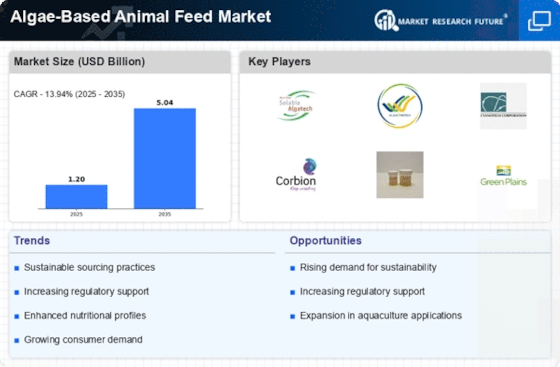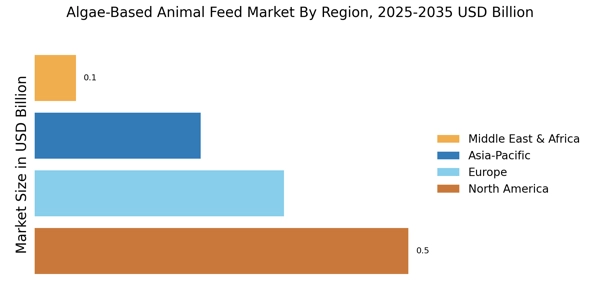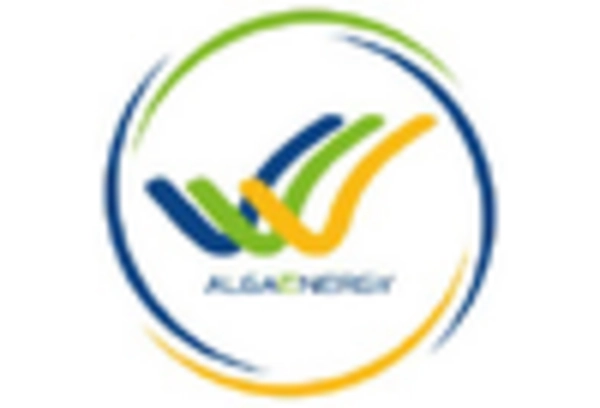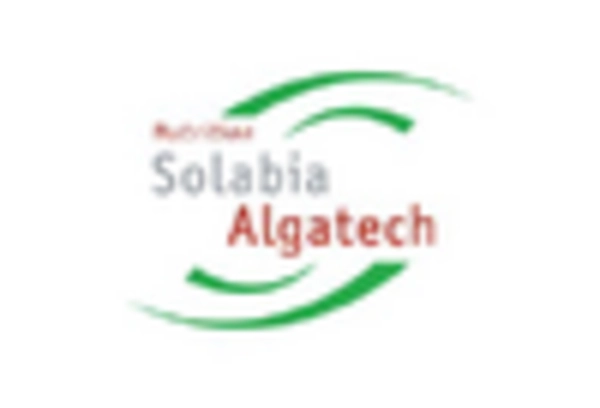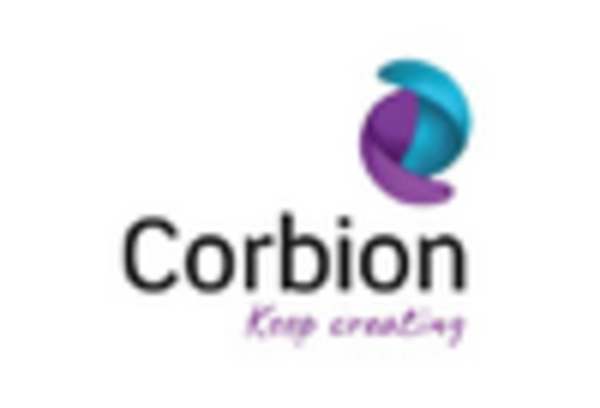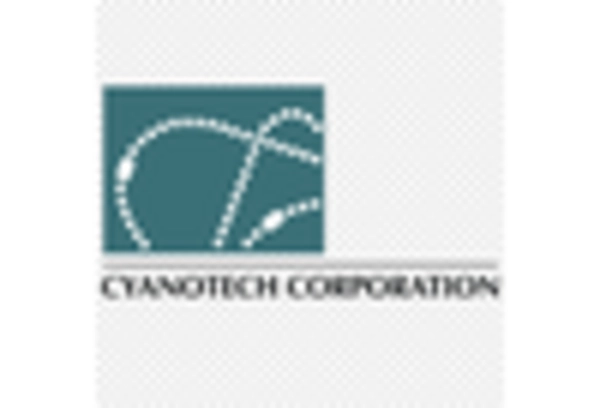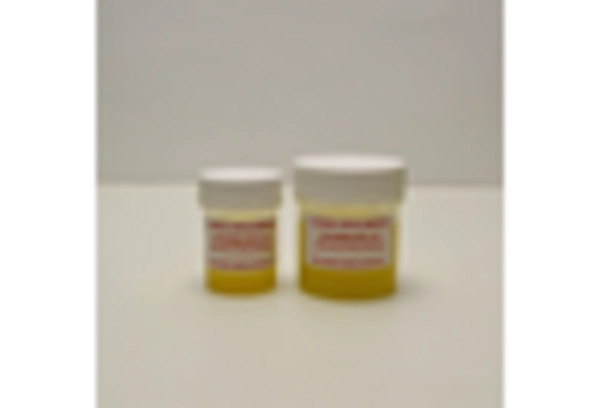Regulatory Support
Regulatory support is emerging as a key driver for the Algae-Based Animal Feed Market. Governments are increasingly recognizing the potential of algae as a sustainable feed source and are implementing policies to encourage its use. This includes providing funding for research and development, as well as establishing guidelines for the safe incorporation of algae into animal diets. Such regulatory frameworks not only facilitate market entry for new players but also enhance consumer confidence in algae-based products. As regulations evolve to support sustainable practices, the Algae-Based Animal Feed Market is likely to experience accelerated growth, with more stakeholders entering the market to capitalize on these opportunities.
Sustainability Focus
The Algae-Based Animal Feed Market is experiencing a notable shift towards sustainability, driven by increasing awareness of environmental issues. Algae cultivation requires significantly less land and water compared to traditional feed sources, making it an attractive alternative. The industry is projected to grow as consumers and producers alike prioritize eco-friendly practices. According to recent data, algae can produce up to 20 times more protein per acre than soybeans, highlighting its potential as a sustainable feed option. This focus on sustainability not only addresses the growing demand for environmentally responsible products but also aligns with regulatory pressures aimed at reducing carbon footprints in agriculture. As a result, the Algae-Based Animal Feed Market is likely to see increased investment and innovation in algae production technologies.
Nutritional Enhancement
The nutritional profile of algae makes it a compelling choice for animal feed, contributing to the growth of the Algae-Based Animal Feed Market. Algae is rich in essential fatty acids, vitamins, and minerals, which can enhance the health and productivity of livestock. For instance, incorporating algae into feed formulations can improve the omega-3 fatty acid content in animal products, appealing to health-conscious consumers. Recent studies indicate that livestock fed with algae-based diets exhibit better growth rates and feed conversion ratios. This nutritional enhancement is particularly relevant in the context of rising consumer demand for high-quality animal products. Consequently, the Algae-Based Animal Feed Market is poised for expansion as producers seek to leverage the health benefits associated with algae.
Technological Advancements
Technological advancements are playing a crucial role in the evolution of the Algae-Based Animal Feed Market. Innovations in cultivation techniques, such as photobioreactors and optimized growth conditions, are enhancing the efficiency of algae production. These advancements not only increase yield but also reduce production costs, making algae a more viable feed option for livestock. Furthermore, research into genetic modifications of algae strains is underway, aiming to boost nutritional content and growth rates. As these technologies mature, they are expected to drive down prices and increase accessibility, thereby expanding the market. The Algae-Based Animal Feed Market stands to benefit significantly from these developments, as they align with the growing need for sustainable and efficient feed solutions.
Rising Demand for Alternative Proteins
The rising demand for alternative proteins is significantly influencing the Algae-Based Animal Feed Market. As consumers become more health-conscious and environmentally aware, there is a shift away from conventional protein sources towards more sustainable options. Algae, being a rich source of protein, is well-positioned to meet this demand. Market data suggests that The Algae-Based Animal Feed is projected to grow substantially, with plant-based proteins, including algae, gaining traction. This trend is further fueled by the livestock industry's need to diversify feed sources in response to fluctuating prices of traditional feed ingredients. Consequently, the Algae-Based Animal Feed Market is likely to expand as producers seek to incorporate algae into their feed formulations to meet consumer preferences.


